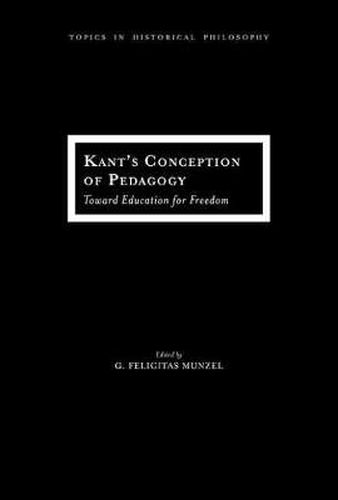Readings Newsletter
Become a Readings Member to make your shopping experience even easier.
Sign in or sign up for free!
You’re not far away from qualifying for FREE standard shipping within Australia
You’ve qualified for FREE standard shipping within Australia
The cart is loading…






Although he was involved in the education debates of his time, it is widely held that in his mature philosophical writings Immanuel Kant is silent on the subject. In her groundbreaking Kant’s Conception of Pedagogy, G. Felicitas Munzel finds extant in Kant’s writings the so-called missing critical treatise on education; it appears in the Doctrines of Method with which he concludes each of his major works. Here Kant identifies the fundamental principles for the cultivation of reason’s judgement when it comes to cognition, beauty, nature, and the exercise of morality while subject to the passions and inclinations that characterise the human experience. From her analysis, Munzel extrapolates principles for a cosmopolitan education that parallels the structure of Kant’s republican constitution for perpetual peace. With the formal principles in place, the argument concludes with a query of the material principles that would fulfil the formal conditions required for an education for freedom.
$9.00 standard shipping within Australia
FREE standard shipping within Australia for orders over $100.00
Express & International shipping calculated at checkout
Although he was involved in the education debates of his time, it is widely held that in his mature philosophical writings Immanuel Kant is silent on the subject. In her groundbreaking Kant’s Conception of Pedagogy, G. Felicitas Munzel finds extant in Kant’s writings the so-called missing critical treatise on education; it appears in the Doctrines of Method with which he concludes each of his major works. Here Kant identifies the fundamental principles for the cultivation of reason’s judgement when it comes to cognition, beauty, nature, and the exercise of morality while subject to the passions and inclinations that characterise the human experience. From her analysis, Munzel extrapolates principles for a cosmopolitan education that parallels the structure of Kant’s republican constitution for perpetual peace. With the formal principles in place, the argument concludes with a query of the material principles that would fulfil the formal conditions required for an education for freedom.